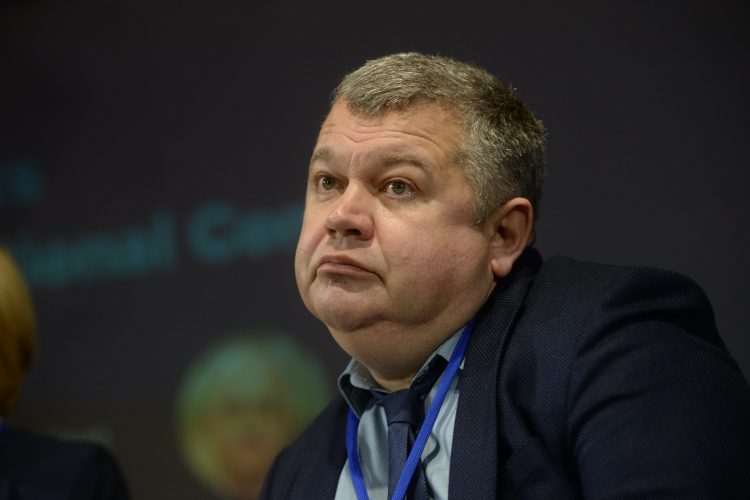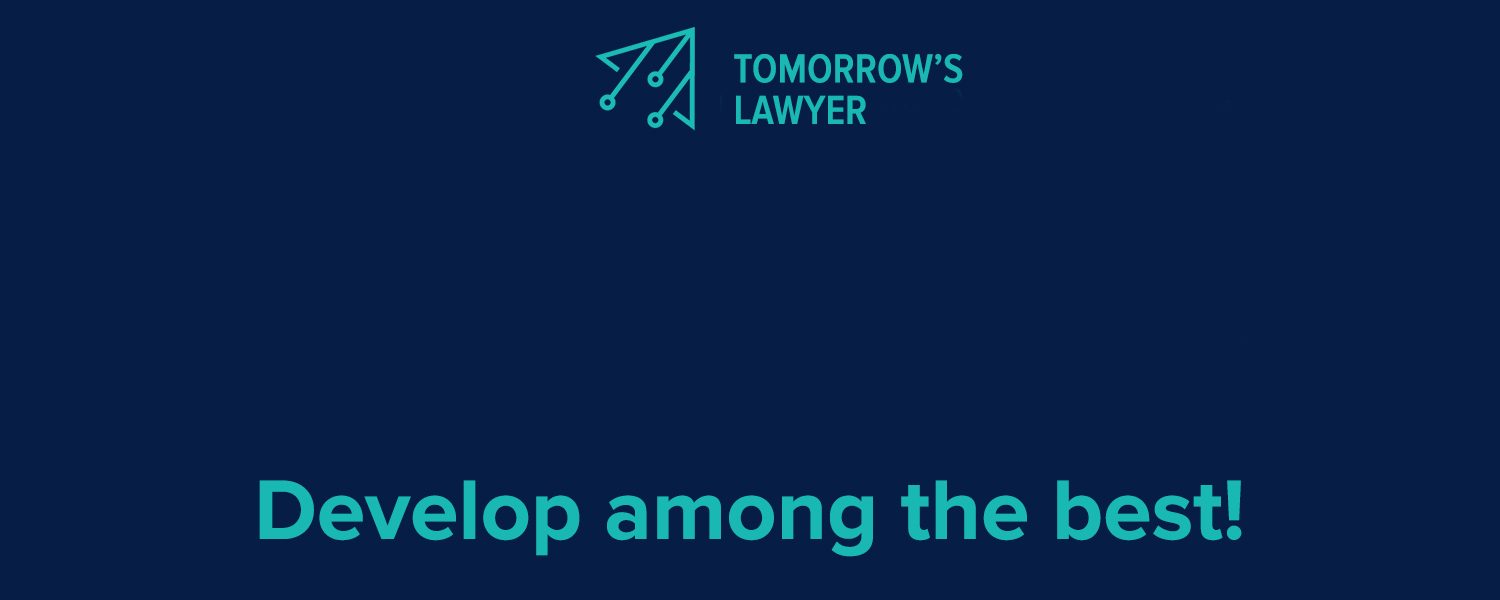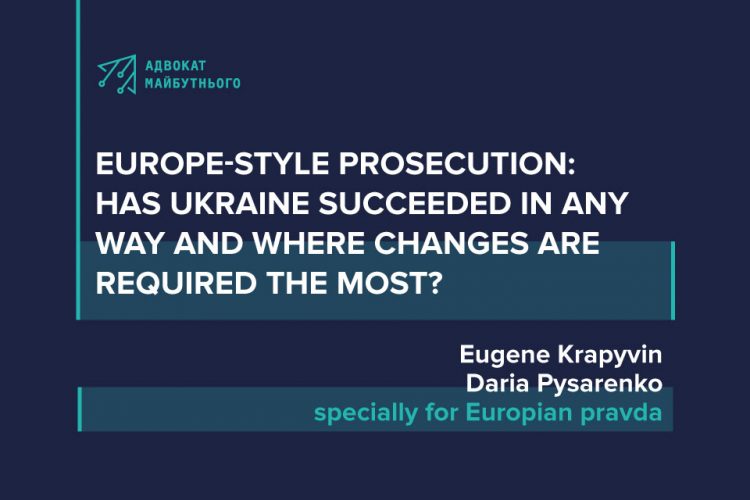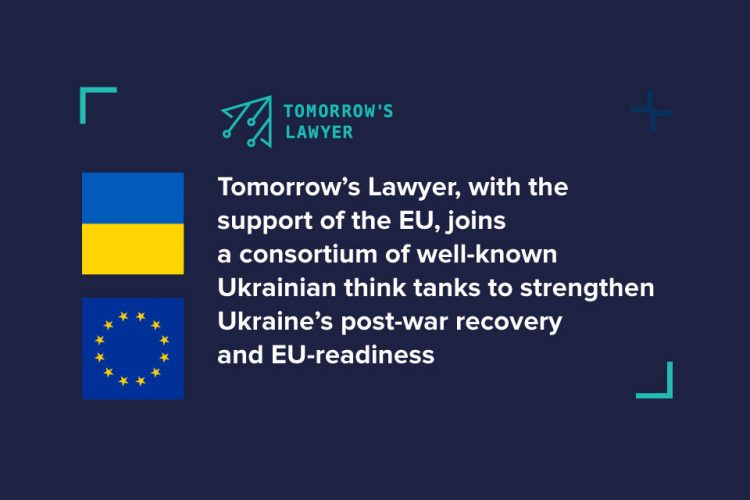


On the Abolishment of Monopoly of Legal Representation – Interview with Dmytro Kukhnyuk for Yurydychna Gazeta Weekly
Dmytro Kukhnyuk, Managing Partner of Melnyk, Kukhnyuk and Partners, candidate of judicial science, Associate Professor of the Department of Notary and Enforcement Process, and the Bar of the Kyiv National Taras Shevchenko University , Expert of the Tomorrow’s Lawyer Program
Yegor Zeltukhin, Editor-in-Chief of Yurydychna Gazeta
Interview with Dmytro Kukhniuk for the Yurydychna Gazeta Weekly
The legal community is holding its breath and waiting for the Constitutional Court of Ukraine to reach its conclusion on Draft Law No. 1013 (abolishing the lawyer’s monopoly of legal representation). The evaluation of the CCU can play a crucial role in this process. However, there is no consensus among lawyers about this issue, as well as an understanding of where the dog is actually buried.
Myths and threats of cancellation of the exclusive right of lawyers to represent in the court were revealed by Dmytro Kukhnyuk, Managing Partner of Melnyk, Kukhnyuk and Partners, candidate of judicial science, Associate Professor of the Department of Notary and Enforcement Process, and the Bar of the Kyiv National Taras Shevchenko University, Expert of the Tomorrow’s Lawyer Program in his interview for the Yurydychna Gazeta Weekly.
– Dmytro, lately there has been some information in the media about the abolition of the lawyer’s monopoly of legal representation. The comments are extremely negative, including those made by some members of the legal community. At last it seems so that the removal of the rule on the exclusive right of lawyers to represent clients in court may lead to the death of the legal profession…
– First of all, the thesis widely spread in some media regarding the abolition of the monopoly of lawyers for representation in courts is not true. In fact, the lawyers’ partial monopoly on representing clients in courts is provided not only in the Constitution but also in the relevant procedural codes. At present, the lawyer’s monopoly has not been removed from the Constitution, since the Verkhovna Rada has only taken a step towards its abolition by first approving the relevant bill and sending it to the Constitutional Court of Ukraine for its opinion. In order for the rule on the lawyer’s monopoly to be removed from the Constitution, it is necessary to obtain a positive opinion of the Constitutional Court and to win at least 300 votes at the next regular session of Parliament in support of the removal of this rule.
However, in reality, even if this happens, the lawyer’s monopoly will also not be abolished, but only removed from the Constitution, since the exclusive right of lawyers to represent clients in courts is provided for in the relevant procedural codes – criminal, civil and administrative. By the way, the
draft law №1013 abolishing monopoly does not provide for the exclusion of the monopoly rule from these codes. It is only a matter of deleting Part 4 in part, Part 5 Art. 131 note 2 completely. Why Part 4 partially? Because there remains the exclusive right of lawyers to defend clients in criminal proceedings while the rule that only lawyers can represent clients in courts will be removed.
– Do you think that Verkhovna Rada’s decision to remove from the Constitution of Ukraine mentioning of the monopoly of lawyers for representation in courts, was correct?
– In my opinion, this step is absolutely justified. As the experience of European countries, where there is a monopoly of lawyers for legal aid or representation in the courts, this issue is never regulated at the level of the Constitution of these countries, it concerns procedural law. Regulation of this issue at the level of the law is more convenient and flexible. It is much easier to amend the law than the Constitution. That is, it is a matter of over-regulation that occurs in the matter of securing a lawyer’s monopoly at the level of the Constitution, which is not in line with the practice of European countries where such a monopoly exists. Because not all European countries provide for the monopoly of lawyers on legal aid or representation in courts.
– What is the problem of the lawyer’s monopoly in its current form?
– Let’s take a look at Part 5 of Art. 131 note 2, which lists 5 exceptions to the exclusive right of lawyers to represent the courts. These are labour disputes, election and referendum disputes, disputes concerning the protection of social rights, disputes in the cases of minors, incapacitated persons and persons with disabilities. Oddly enough, the least protected groups of society remained out of the lawyers’ monopoly on representation in courts. In addition, due to the manipulation of copying the examples given in the Venice Commission’s opinion on the draft amendments to the Constitution on justice, the previously unknown term “minor disputes” appeared in the legislation.
Under the category of such disputes, which were originally defined in the Constitution, various criteria began to be drawn up. The first attempt was made in a draft law that proposed to amend Art. 10 of the Law “On the Judiciary and Status of Judges” and to determine the level of insignificance of disputes in the amount of not more than 1 million UAH. That is, it testifies to the true intentions of the authors to create a monopoly for the “chosen”. In other words, if you have an appropriate claim price that exceeds a certain amount, then you have the right to a monopoly, and if not, you have no such right.
For example, in the Criminal Procedural Code of Ukraine, the level of insignificance of disputes is set at a minimum living wage per working person. This amount equals a little less than 200 thousand UAH (approximately $ 8000). This is a very small percentage of the total number of civil and administrative cases. According to the judges, the percentage of cases that have a claim price in excess of that threshold is insignificant. This gives grounds for claiming that the lawyers’ monopoly on representation in courts is selective.
Full text of the interview is available on the Ukrainian web-page
***
The opinions expressed in this article are the author’s own and do not reflect the view of the “Tomorrow’s Lawyer” Program, the Ukrainian Bar Association, the Bar Association of Legal Aid Providers, the Quality and Accessible Legal Aid in Ukraine Project, the Canadian Bureau for International Education, or the Government of Canada and the Law Enforcement Section of the United States Embassy in Ukraine.
“Tomorrow’s Lawyer” is a powerful network of lawyers uniting opinion leaders in the legal profession, who provide legal assistance in accordance with the highest ethical standards, act as agents of change in society and leaders in the professional community.
The “Tomorrow’s Lawyer” Program was launched in 2016 and first implemented within the “Quality and Accessible Legal Aid” Project, carried out by the Canadian Bureau for International Education with the support of the Government of Canada in cooperation with the Legal Aid Coordination Centre. It is currently being implemented and developed with the support of the US Embassy’s Law Enforcement Section in Ukraine, the “Tomorrow’s Lawyer” NGO, in partnership with the Ukrainian Bar Association and the Bar Association of Legal Aid Providers.


